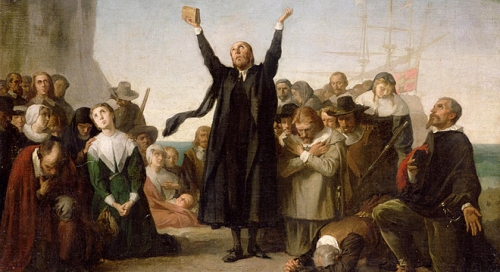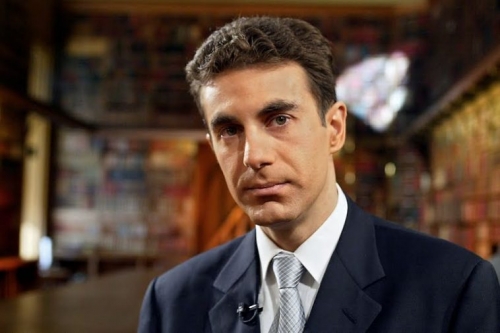“Religion, taking every mortal form
But that pure and Christian faith makes warm,
Where not to vile fanatic passion urged,
Or not in vague philosophies submerged,
Repulsive with all Pharisaic leaven,
And making laws to stay the laws of Heaven!”
— From “Ethnogenesis,” by Henry Timrod
South Carolinian Henry Timrod penned these words in February 1861 at the meeting of the First Confederate Congress at Montgomery, Alabama. Many regarded Timrod as the “poet laureate” of the Confederacy because his evocative works potently blended lyrical composition with patriotism for his nation, the South.
In “Ethnogenesis,” this teacher, tutor, and devout Anglican boldly describes a people who self-proclaim superior sanctity and feel divinely ordained to impose their will by force, drawing the comparison of the ancient Pharisees to Yankees. But just exactly how did they get there? I began heading down this historical rabbit hole in “A City Upon a Hill,” so let’s dig a little deeper, shall we?
“The Hebrew Republic”
Just as the Pharisees were once “separated ones,” New England Pilgrims originally cloistered themselves in an effort to promote and protect their stringent definitions of piety. The Pharisees were preservers of pure Mosaic law, the Puritans too were steeped in strict rules and draconian enforcement thereof. In fact, instead of embracing the New Covenant of Jesus fulfilling the Law, the Pilgrims were steeped in legalism while trying to institute a “Christian Israel” in Massachusetts.
According to Jewish scholar Dr. David Ariel, “the early New England Puritans saw … King Charles I as Pharaoh, the Atlantic Ocean as the Red Sea, America as the Promised Land, and Boston as the new Jerusalem.” With its roots in Renaissance humanism, this Christian Hebraism was seen as the cornerstone for creating a new society based upon social and economic ideals of the Hebrew Bible.
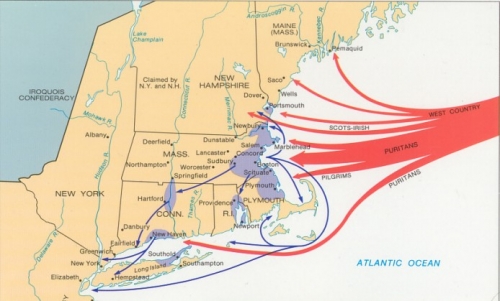
In fact in 1636, John Cotton, the central theologian and minister of Massachusetts Bay Colony, drafted “Moses, His Judicials” at the behest of colony magistrates. His writings became the basis for Massachusetts’ first legal code and modeled its provisions solely on Hebrew Scripture’s vision for a faith-based polity and society.
John Cotton’s grandson Cotton Mather, who was a dominant Puritan minister and author in his own right, “quoted widely from the entire canon of Hebrew literature including the Hebrew Bible, Talmud, Midrash, Rashi, Maimonides, Nachmanides, and Zohar,” wrote Ariel. Mather “was even reported to have started wearing a skullcap at home and calling himself ‘rabbi.’”
John Bunyan’s influential “Pilgrim’s Progress” was filled with the Scriptural hermeneutics of abandoning the formality, liturgy, and confessionalism of high-church Christianity, and promoting works and salvation through sincerity and what the Pilgrims called a new “pure” faith. Yet, the Puritans weren’t really progressing or reforming.
Rather, they were recycling – trading 1,600-year-old Christian history and traditions for those of the ancient Hebrews. It’s almost as if the Puritans were just reinventing themselves as Judaizers to whom the Apostle Paul wrote the entire New Testament book of “Galatians” as a way to correct this heresy of the early Church.
A sectional divide only deepened
Thirty-five years after the English settled in Jamestown and 22 years after the Pilgrims landed in Plymouth, the English Civil Wars were unfolding back across the Atlantic. It was a complicated series of battles between Parliamentarians (a.k.a. “Roundheads”) and Royalists (“Cavaliers”).
These wars were chiefly over the form and function of how the kingdoms of England, Ireland, and Scotland should be governed. And with the grueling 11-year power struggles obviously came religious clashes, most notably for England an intense face-off between the pro-crown Anglicans and pro-parliament Puritans.
In fact, some historians call the English Civil Wars the “Puritan Revolution.” And Oliver Cromwell – the Roundhead political and military leader who was “1st Lord Protector of the Commonwealth” during the short-lived republican governance of the British Isles – came to be known as the Puritan Moses.
Obviously, these English conflicts had ripple effects for the colonies in America. The New England Puritans were staunch parliamentarians, while Virginians were solidly royalists, further widening the manifest ideological and religious divide that already existed between Northern and Southern colonists.
Many Royalist gentry flocked to Virginia during the Cromwell Protectorate in an effort to escape “entail and primogeniture” (a system in which only the first-born son gets all the land of the father), growing the cavalier population and strengthening the colony’s already distinct culture. Virginia was so devoted to the crown that when the English monarchy was restored in 1660, King Charles II called her the “Old Dominion” as thanks.
Massachusetts domination
By this time, New Sweden, the Swedish Colony along the Delaware Valley, had been defeated by the Dutch Republic. And by 1674, the First Anglo-Dutch War had come to an end with the English finally triumphing over New Netherland, the Dutch colony along the Hudson River Valley, putting the Puritans in a powerful position.
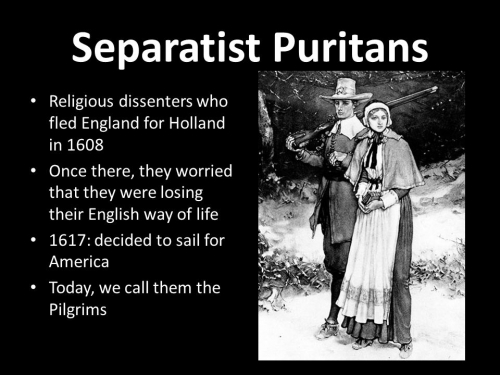
Yet, the Puritans could barely get along with one another. Their New England Confederation was formed in 1643 to strengthen the military alliances between the Plymouth, Massachusetts Bay, New Haven, and Connecticut colonies in order to defend against Native Americans in the Pequot War, as well as against the the Dutch and the French.
But it was a contentious and short-lived compact, brimming with infighting and power struggles, proving Pilgrims’ intolerance of even their fellow Puritans. “The sense that one had special instructions from God made individuals less amenable to moderation and compromise, or to reason itself,” explained historian Dr. Ned Landsman.
Still, Puritanism was winning big, especially for Massachusetts. It’s legal code and Hebraic ethos was spreading throughout great expenses of the North, while Cavalier culture was simultaneously flourishing in the Southern colonies of Virginia and now Carolina. The seeds of sectional discontent and puritanical progressivism were already being sewn.
Moreover, “The experience of the Puritan colonies in the joint aggression against the Pequots added to the continuing drive of Massachusetts Bay for domination over its neighbors,” wrote economist and historian Dr. Murray N. Rothbard in “Conceived In Liberty.” And this arrogant vision would only continue to grow despite its rootlessness and chaotic nature.
Theocracy unbound
February 1692-May 1693 brought on the the Antinomian Controversy and its subsequent Salem Witch Trials. Pilgrims like Anne Hutchinson believed that the doctrine of predestination offered Christians “Free Grace,” so the rigid enforcement of proper Puritan conduct wasn’t necessary.
“If God has predetermined for me salvation or damnation, how could any behavior of mine change my fate?” she asked. The allegedly anti-hierarchical Pilgrim authorities weren’t too keen on such disunity and dissenting views on Puritanism.
The trials took place under the direction of Cotton Mather. Because of the clergy’s dominance in these small, church-centered enclaves that comprised Massachusetts, ministers held the power of arresting people and administering their trials, and Hutchinson found herself banished from the colony.
Then-governor of Massachusetts, Sir William Phips, created the Court of Oyer and Terminer to handle the trials since their was no high court yet in the colony. Only a year before in 1691 had the colony even gotten a renewed charter from William and Mary, creating the Province of Massachusetts. King James II had revoked the colony’s previous royal charter due in large part to Massachusetts’ harsh intolerance of Anglicans.
It wasn’t until Phips’ wife was accused of witchcraft that the legal hysteria ceased, but that wasn’t before about 20 people and two dogs had been executed and some folks like Hutchinson had been cast out from the colony. Some historians claim that the conclusion of these religiously extreme trials marked an end to theocracrtic Puritan rule.
But I would argue that this was just the beginning. Just like the Pharisees, whose influence became only second to that of the Roman governor, the legalistic roots of the Puritans easily transitioned these once God-focused outsiders founding a ‘Christian Israel’ into godless and powerful insiders hellbent on creating an irreligious Promised Land.
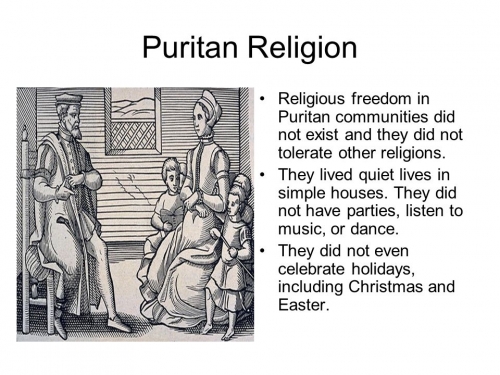
More Orwellian than Christian
This “pure” faith bent to the world, instead of holding it at bay. However, it was precisely the Puritans’ religious asceticism that led them to this place.
They sought Hebraic emulation, yet they were hostile to ritual discipline, and void of tradition and history. Thus, Puritanism was innately defenseless against schism, much less humanism, secularism, and modernity. It was hardwired to fail, but only in a religious sense.
Politically and socially, Puritans realized that a progressive heaven on earth could more easily be attained through imposing man’s laws on everyone everywhere, using urgent moralistic talk void of Jesus but done with all the “vile fanatic passion” of Cotton Mather. Totalitarianism and emotion indeed comprise the Northern zeitgeist.
Moralizing busybody. Meddlesome. Irksome. Intolerant. Coercive. Holier than thou. The Yankee was born of such Puritan stock and sensibility. And as Christianity was cast to the periphery of society, the self-righteous Puritan ideals remained internalized within the Yankee people and was embedded in the growing body politic.
Progressive secularism became their new religion, and resistance is futile, they say. All will convert or submit, or suffer their wrath.
The Pharisees called Jesus a deceiver, a blasphemer, and a friend to the prince of demons. Likewise, anyone who wasn’t (or isn’t) fully in line with their ever-changing but always stringent Puritanical rules might be castigated a witch, sub-human Southern scum, a traitor, or a Nazi. You might even get jailed … or killed.
But hey, you gotta break a few eggs to make an omelet. The ignorant masses need saving after all, and the religious “reformers” and social transformers are up to the task. You might call it dystopian cultural hegemony, but the New England Pharisees call it the “greater good.”





 del.icio.us
del.icio.us
 Digg
Digg
